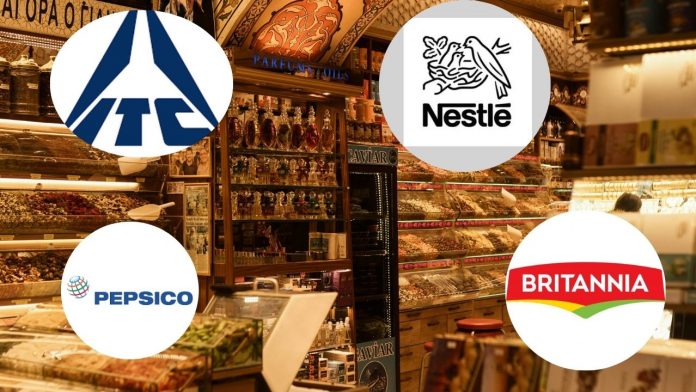India’s largest packaged food companies, including Nestle, ITC, Britannia, PepsiCo, and Danone, are now linking the performance goals of their CEOs and other top executives to nutrition targets.
This move comes amid increasing pressure from shareholders, governments, and consumers to promote healthier eating habits.
FMCG links KPI with nutrition of leader
Companies are now including nutrition as a key performance indicator (KPI) for their leaders, alongside traditional metrics such as revenue growth and profitability. This shift reflects the growing importance of nutrition and wellness in the packaged food industry.
Continue Exploring: E-commerce emerges as top sales channel for FMCG, what does new study have to say?
Britannia, for example, is reducing sugar and sodium content in its products, while increasing the whole grain content. This is a critical performance goal for all leaders at the company. Danone and PepsiCo have also included nutrition strategies as a direct responsibility of their leadership, with regular oversight.
Meanwhile, Nestle and ITC have set up dedicated nutrition teams, in addition to making nutrition a key part of their leaders’ performance goals. “This is the need of the hour and the trend has started. Almost all companies will follow this,” said Monica Agrawal, India Lead Board and Chief Executive, Services, at Korn Ferry to ET.
Companies are responding to the growing demand for healthier food options. “Companies, in order to sustain business models, need to stay ahead of the curve, given the focus on wellness and nutrition,” Agrawal added.
Nestle, ITC, Nusli Wadia’s to promote healthier food habits
Notably, Nestle, which makes popular brands such as Maggi noodles and KitKat chocolate, has a dedicated ‘health and wellness’ team to oversee the escalation of nutrition across its portfolio. The company has introduced millets in select variants of Maggi noodles and has launched 14 new variants of infant food Cerelac without refined sugar.
Continue Exploring: Transforming the Alco-Bev landscape in India : PAIL’s INR 1000 Cr expansion plans
In addition, ITC has also introduced a new brand called Right Shift, which includes cookies, roasted snacks, flour, and oats with millets. The company has a ‘head of nutrition sciences’ to oversee the inclusion of nutrition content across its portfolio.
“Adding nutritional content is crucial now, even for so-called ‘junk foods,’ such as noodles and sugary cookies, with the national foods regulator FSSAI planning to make it mandatory for all companies to declare ingredients prominently on the front of the packs,” said an executive at a packaged foods maker.
Further, Nusli Wadia’s company has removed trans fats from its bakery products, is making Nutrichoice biscuits with 100% whole wheat flour, and has reduced the sugar content in Nutrichoice Digestive by 9%, Milk Bikis by 13%, and Winkin Cow shakes by 16.7%.
Krishna Malladi, a partner at Deloitte, said, “We are increasingly seeing companies have dedicated roles, shared accountabilities towards building insights and strategies that shape new revenue lines targeting wellness and nutrition opportunities.” He added, “We are witnessing two key priorities in performance goals of consumer-centric companies. The first is towards building healthier variants of existing brands. The second, and a more major shift, is accelerated focus towards tapping into the wellness and nutrition market opportunity in India.”
The trend of linking executive performance goals to nutrition targets is not limited to India. A global report by the Access to Nutrition Initiative found that food companies are increasingly assigning formal ownership of their nutrition strategies to a named executive or executive committee. The report cited Danone, General Mills, and PepsiCo as examples of companies that have linked executive remuneration to nutrition goals.





